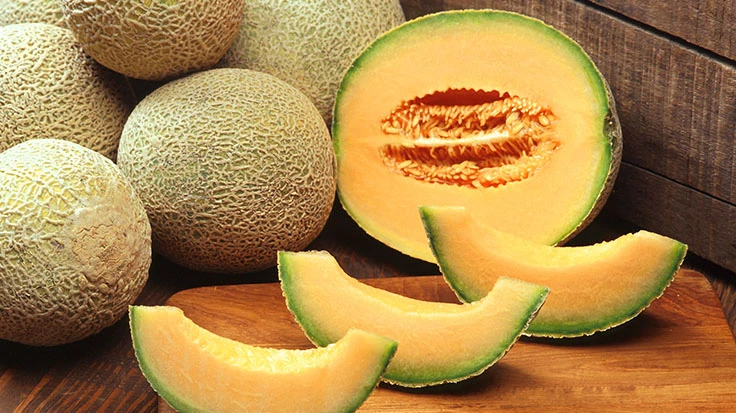
ContagionLive - According to new research, applying antimicrobial coatings to whole cantaloupes during storage significantly reduces contamination by pathogenic bacteria, and has the potential to improve their microbiological safety and extend their shelf life. Qiumin Ma, PhD, from the University of Tennessee in Knoxville, and colleagues published the results of their study in the International Journal of Food Microbiology.
Chitosan-based coatings “significantly inhibited the growth of E. coli O157:H7, L. monocytogenes and S. enterica cocktails on whole cantaloupes during 14-day storage at ambient temperature (21°C),” the authors wrote. “Coatings also significantly reduced total mold and yeast counts on whole cantaloupes.”
Chitosan, derived from the polysaccharide chitin, is known to have film-forming properties as well as antimicrobial activity. Chitosan-based coatings have also been shown to improve food safety in fresh produce. With this in mind, Dr. Ma and colleagues conducted a study to investigate the efficacy of such antimicrobial coatings in reducing bacterial populations from the surface of cantaloupes. In addition to chitosan, they investigated two GRAS antimicrobials—lauric arginate and cinnamon oil, along with ethylenediaminetetraacetic acid (EDTA).
Read the full article at ContagionLive.
Access the study at NCBI.
Get curated news on YOUR industry.
Enter your email to receive our newsletters.Latest from Quality Assurance & Food Safety
- Q&A: Sandra Eskin Leads Food Safety Advocacy Organization, STOP, as CEO
- STOP CEO Eskin on Government Layoffs, Challenges in Food Safety
- Mission Barns Announces Cell-Cultivated Pork Fat Launch Following FDA Clearance
- Hearthside Food Solutions Recalls Breakfast Sandwiches Due to Undeclared Allergen
- Walker’s Wine Juice Recalls Pumpkin Juice Due to Botulism Risk
- The Cascading Food Safety Impacts of Tariffs on the Food Industry
- Tyson Ventures Calls Startups to Apply for Tyson Demo Day
- Student Finalists Selected for IFT Product Development Competitions






